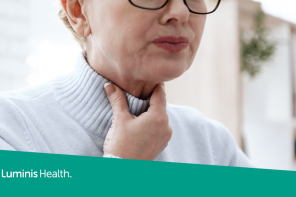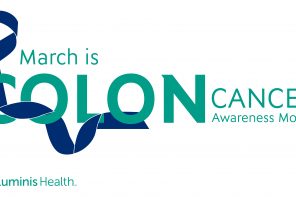Did you know that one woman in 75 will develop ovarian cancer in her lifetime? Or that the Pap test doesn’t detect ovarian cancer? And did you know that when diagnosed and treated in the earliest stages, five-year survival rate is over 90 percent?
Women are nurturing and selfless by nature, but sometimes it’s important to remind them that they also need to take care of themselves and worry about their health first. Moms, grandmothers, daughters, sisters, aunts – and all other wonderful women who have taught us how to look after ourselves – the same applies to you.
Ovarian cancer is the fifth leading cause of cancer-related deaths in women, according to the American Cancer Society (ACS). Unfortunately, many women don’t seek the help they need until the disease has developed and spread. Although there is no research showing what exactly causes most ovarian cancers, some of the risk factors that can lead to it include genetic predisposition, personal or family history, age, infertility and obesity, among others.
An estimated 22,240 women will receive a new diagnosis of ovarian cancer this year in the United States alone, according to ACS. Approximately 14,070 women will die from ovarian cancer.
READ MORE: Tips on supporting a loved one through cancer.
Research shows ovarian cancer mainly develops in older women, with half of the women diagnosed at 63 years or older. The good news is that the rate at which women are diagnosed with this cancer has been slowly falling over the last 20 years. There are ways you can reduce your risk of developing ovarian cancer, according to the ACS.
Although there has been a lot of research to develop a screening test for ovarian cancer, there hasn’t been much success aside from a complete pelvic exam, a transvaginal ultrasound (TVUS) and the CA-125 blood test. Early cancers of the ovaries often cause no symptoms. However, paying attention to a few potential warning signs and symptoms may improve the odds of early diagnosis and successful treatment.
Only about 20 percent of ovarian cancers are found at an early stage. Below is a list of warning symptoms that are linked to this cancer. If you feel these almost daily for more than a few weeks, report them right away to your health care professional.
Potential signs and symptoms of ovarian cancer:
- You feel bloated
- You have pelvic or abdominal pain
- You have trouble eating or you feel like you’re full very quickly
- You feel like you need to urinate urgently or very often
Other symptoms of ovarian cancer:
- You feel fatigued
- You have an upset stomach or feel heartburn
- You have back pain
- You experience pain during sex
- You have constipation or menstrual changes, such as heavier or irregular bleeding
- You have nausea, indigestion, gas or diarrhea
- You suffer shortness of breath
- You gain weight
These symptoms might seem vague now, but they can persist and get more intense over time. If you are concerned about your risk of ovarian cancer or have experienced any of the symptoms listed above for an extended period, talk to your health care professional. Early detection increases survival rate. You’ve done a great job at looking after others, make sure you take some time to look after your health and put yourself first.




